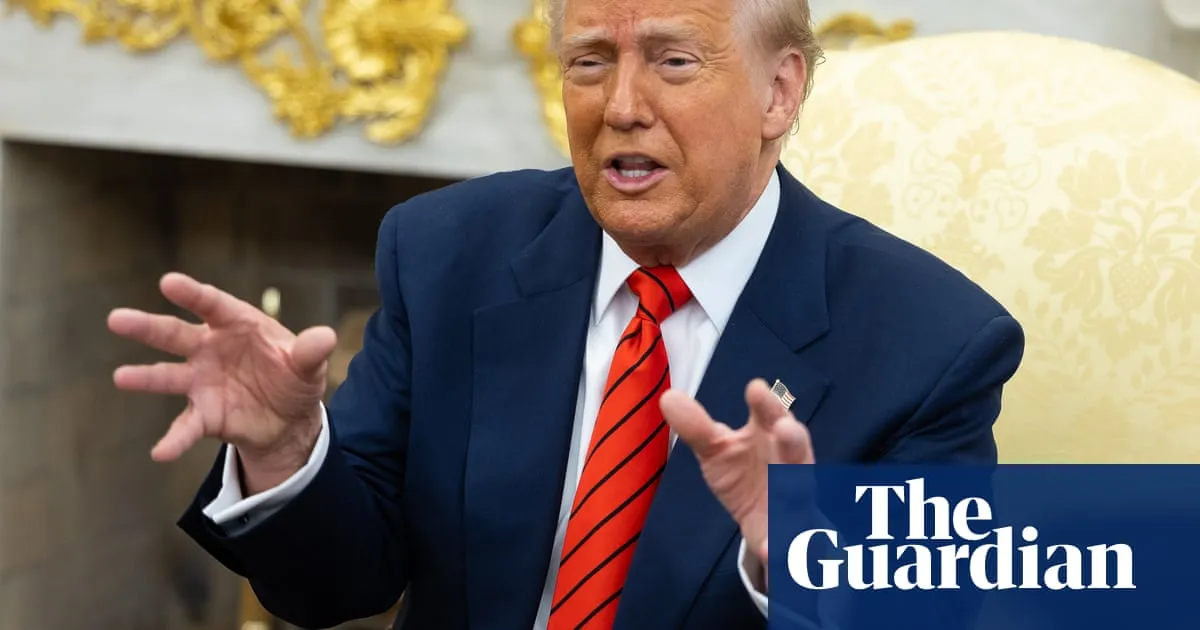
Donald Trump has proclaimed a “total reset” in US-China trade relations following the initial day of high-stakes talks between leading American and Chinese officials held in Geneva. These discussions aim to alleviate the ongoing trade war that erupted due to the tariffs imposed by Trump earlier this year.
In a statement on his Truth Social platform early Sunday, Trump described the discussions as “very good” and characterized them as “a total reset negotiated in a friendly but constructive manner.” He expressed a desire for both nations, stating, “We want to see, for the good of both China and the U.S., an opening up of China to American business,” and enthusiastically added, “GREAT PROGRESS MADE!!!” However, he did not provide specifics regarding the advancements achieved.
During the first day of negotiations, top officials from both countries convened in Geneva, a diplomatic hub, to address escalating tensions that threaten to disrupt the global economy. According to sources close to the discussions, negotiations were slated to continue into Sunday.
Chinese Vice-Premier He Lifeng engaged in extensive discussions for approximately eight hours with US Treasury Secretary Scott Bessent and US Trade Representative Jamieson Greer. This marked their first face-to-face interaction since both countries imposed significant tariffs exceeding 100% on each other’s goods. Currently, Trump’s tariffs on Chinese imports stand at an alarming 145%, while cumulative US duties on certain Chinese products reach as high as 245%. In retaliation, China has enforced tariffs of 125% on US goods, effectively creating a near trade embargo between the two economic superpowers.
Following the completion of their talks at the Swiss ambassador’s residence to the UN, no official statements were released regarding the content of the discussions, nor did either side indicate any tangible progress towards reducing the crippling tariffs. Meetings concluded around 8 PM local time (1800 GMT), leaving the global community in suspense about the outcome.
Previously, the trade dispute had escalated significantly as Trump’s tariff policies took effect in February, leading to retaliatory measures from Beijing that brought nearly $600 billion in annual bilateral trade to a halt. The ongoing trade conflict, coupled with Trump’s recent decision to impose duties on various other countries, has severely disrupted global supply chains, unsettled financial markets, and raised concerns about a potential global economic downturn.
The venue for these critical talks was kept confidential, but witnesses reported seeing both delegations returning to the gated UN ambassador’s villa in Cologny after a lunch break. Prior to the discussions, US officials, including Bessent and Greer, appeared optimistic as they left their hotel, although Bessent did not address reporters. In contrast, Chinese delegation members were seen departing from a hotel in Mercedes vans with tinted windows.
Washington's primary objectives include reducing its substantial $295 billion goods trade deficit with Beijing and persuading China to abandon its mercantilist economic model, which the US claims hinders global consumption. Conversely, Beijing has resisted what it perceives as external pressure and is urging Washington to lower tariffs while clarifying what specific products it expects China to increase purchases of.
China’s official Xinhua news agency commented on the situation, stating that the US's “reckless abuse of tariffs” has destabilized the global economic order. However, it also recognized the negotiations as a “positive and necessary step” towards resolving conflicts and preventing further escalation.
Economic analysts remain skeptical about the likelihood of a breakthrough from these discussions. Trump indicated on Friday that an 80% tariff on Chinese goods “seems right,” marking the first time he suggested a specific alternative to the existing 145% tariffs imposed on Chinese imports. He claimed that the discussions were initiated by China, while Beijing maintained that the US requested the talks, reaffirming its stance against US tariffs.
US Commerce Secretary Howard Lutnick emphasized the president's desire to work collaboratively with China to de-escalate tensions. Trump’s press secretary, Karoline Leavitt, clarified that the US would not lower tariffs unilaterally and that concessions would be required from China.
Swiss Economy Minister Guy Parmelin met with both parties in Geneva on Friday and remarked that the mere occurrence of the talks was a success. He expressed hope that a roadmap could emerge from the discussions, which might continue into Sunday or even Monday, potentially easing the current tensions.